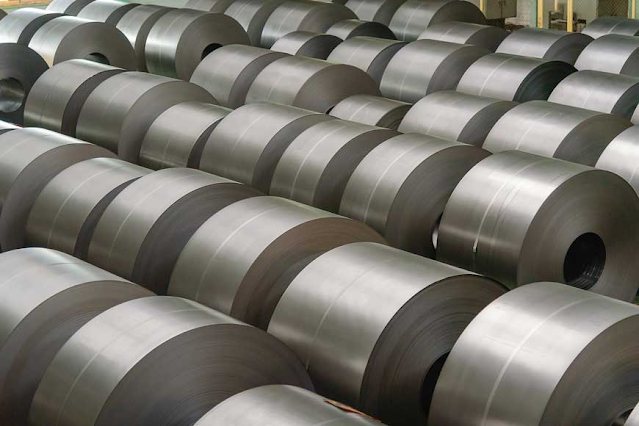What Are The Different HR Sheet Grades And Their Uses
HR steel is more
widely used than cold-rolled sheets due to its strength and vitality. Mostly,
it is used for compressing, framing, and other important strategies like
moving, rolling, and extrusion. The HR steel may not have the best quality but
when it starts to cool down, the material can be one of the ideal ones for
creating products.
Several grades of
Hot-rolled steel are used in specific applications. However, each grade needs
to meet its specific standard for being used in the processing of the product.
The flexibility of the product makes it mold into a variety of shapes and
sizes. In total there are 8 types of
steel grades. Let's take a look at them.
Learn about the different HR sheet grades and
their applications
The hot-rolled steel
is a type of carbon steel, that is heated at or above 1,7000° F. This is the
recrystallization point. Following this, the material is then flattened as per
the required size and shape and modified into different forms. The products
formed can be of different types: low-carbon (up to 0.3% carbon), medium-carbon
(0.3–0.6% carbon), or high-carbon (more than 0.6% carbon).
The HR sheet grade has better mechanical
properties which make it a better material for many applications. These
properties also make it the first choice for being used in applications like
railroad tracks, sheet metal, and construction.
Let's take a look at
the different HR grades that are categorized by steel dealers in India.
1. A36: This steel grade is widely used to make
different products due to its high weldability and machine-washing ability.
Besides this, it also has excellent mechanical properties. Some of the applications of A36 include:
·
Frames of
trucks
·
Agricultural
equipment
·
Shelving
·
Structural
support like walkways, ramps, and guard rails
·
Trailers
·
General
Fabrication
2. C1010
and C1018: These are widely in
demand among steel dealers in India due to their machinability. Further, they
are more flexible, compared to high-carbon steels. The only difference between
C1010 and C1018 is that C1010 has 0.08% to 0.13% carbon content by weight,
while C1018 has between 0.14% to 0.20% carbon content by weight. The different
appliances of these steel grades include:
·
Gears
·
Oil tool
slips
·
Pins
·
Chain pins
·
Studs
·
Anchor
pins
3. A1011: This is used by pre-engineered building manufacturers in India for the
manufacturing of products like automobile bodies, metal fabrication, and sheet
metal structural applications.
The
different applications of this HR sheet grade include:
·
Building,
roofing & construction
·
Automotive
& Transportation
·
Shipping
containers
·
Appliances
·
Heavy
equipment
4. A500: This steel grade is a low-carbon alloy and is
used only for tubing.
5. C1045: This HR sheet grade is AISI-designated.
Surprisingly, even as a medium-carbon steel, this can provide great strength
and durability.
6. C1026: This Steel grade, like the C1045, is also
AISI-designated. It even has similar mechanical and chemical properties to the
A36 grade but with reduced carbon content. Such features make it perfect for
being used by pre-engineered building manufacturers in India for manufacturing
furniture, automotive components, and much more.
7. C1141: This is a medium-carbon steel grade. It
contains manganese and sulphur which makes it machineable.
It is important to choose the right steel grade depending on the purpose of the steel. By using the right material, the manufactured product will be much more durable and will last longer.
Also, You Can Read Our New Updates :-




Comments
Post a Comment